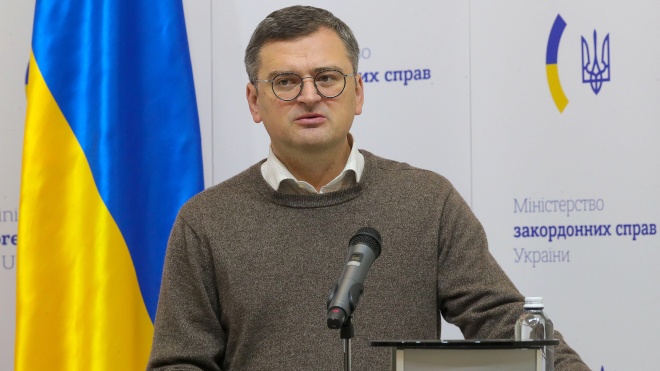Minister of Foreign Affairs Dmytro Kuleba emphasizes that the crime of Russian aggression against Ukraine should be considered by an international tribunal, not a hybrid one.
He said this in a speech at the annual YES conference.
"We have to go to the international tribunal, because the hybrid tribunal does not give an answer to the question of how to prosecute the "troika", which I have already mentioned," he noted.
Kuleba admitted that on this issue, Ukraine has disagreements with the "G7", because it "firmly advocates an internationalized tribunal, which is a hybrid".
Kuleba admitted that for the first time during his tenure as Minister of Foreign Affairs, he did not see a way out of the situation. "Because our friends and partners, whom we value and respect very much, have taken a firm stand. And I believe that for the sake of an international tribunal, for the sake of justice, for the sake of fighting impunity, for the sake of honoring the victims and relatives in times when the law does not serve the purpose — the honorable, worthy purpose of serving justice, we must develop international law like this was in previous decades, and to make justice possible," he emphasized.
Kuleba reminded that the answer to the Second World War was the Nuremberg Tribunal, which became a precedent for the creation of an international tribunal because it was not provided for by the law in force at the time.
The response to the mass murders and crimes committed in the former Yugoslavia was the International Criminal Tribunal for the former Yugoslavia. "And it was a precedent because there was no other tool to respond to it," he added.
"Therefore, my question to the international community now is: if we have to choose between justice and law, we must always choose justice and, accordingly, change international law. If this does not happen, then those who oppose this decision are essentially making a clear political and legal statement that this Russian aggression against Ukraine is less important than the war in Yugoslavia and World War II and the challenges created by those wars. This is unfair," Kuleba emphasized.
- Ukraine has been working for more than a year and a half to create a Special Tribunal for the crime of aggression and bring Vladimir Putin and other high-ranking Russian officials to justice there. In order to overcome Putinʼs presidential immunity and for the tribunal to be legitimate, it must be supported by the worldʼs leading democracies, first of all the United States — and they are not against it, but not at all in the format that Ukraine needs.
- Meanwhile, Ukraine, the European Union, the International Criminal Court and the government of the Netherlands launched a dialogue group to support investigations of international crimes in Ukraine, and the United States began cooperation with the Joint Investigative Team (JIT) investigating Russiaʼs serious international crimes in Ukraine.

